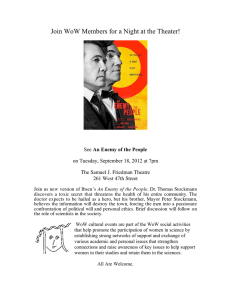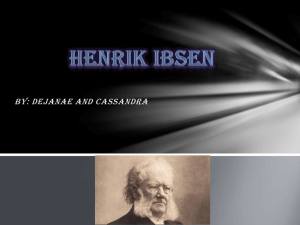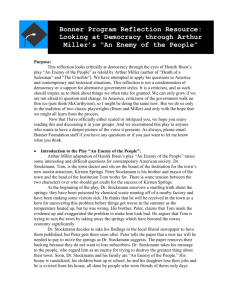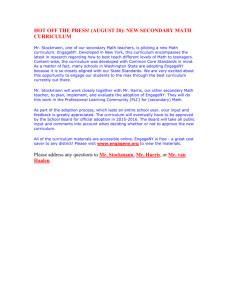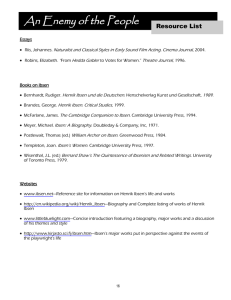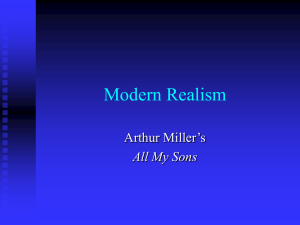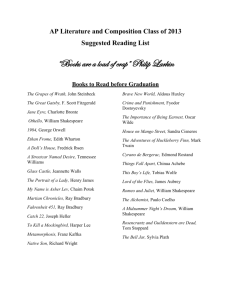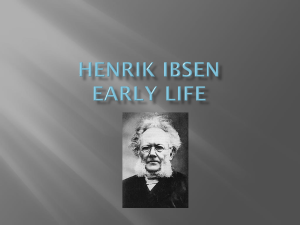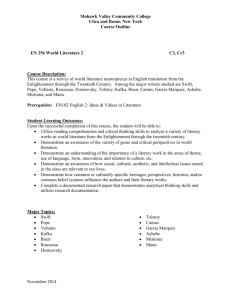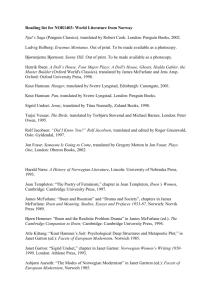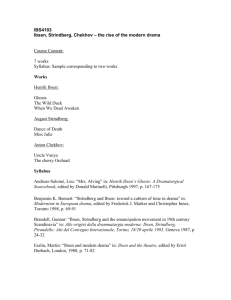Literary Essay – Topics and Early Research
advertisement
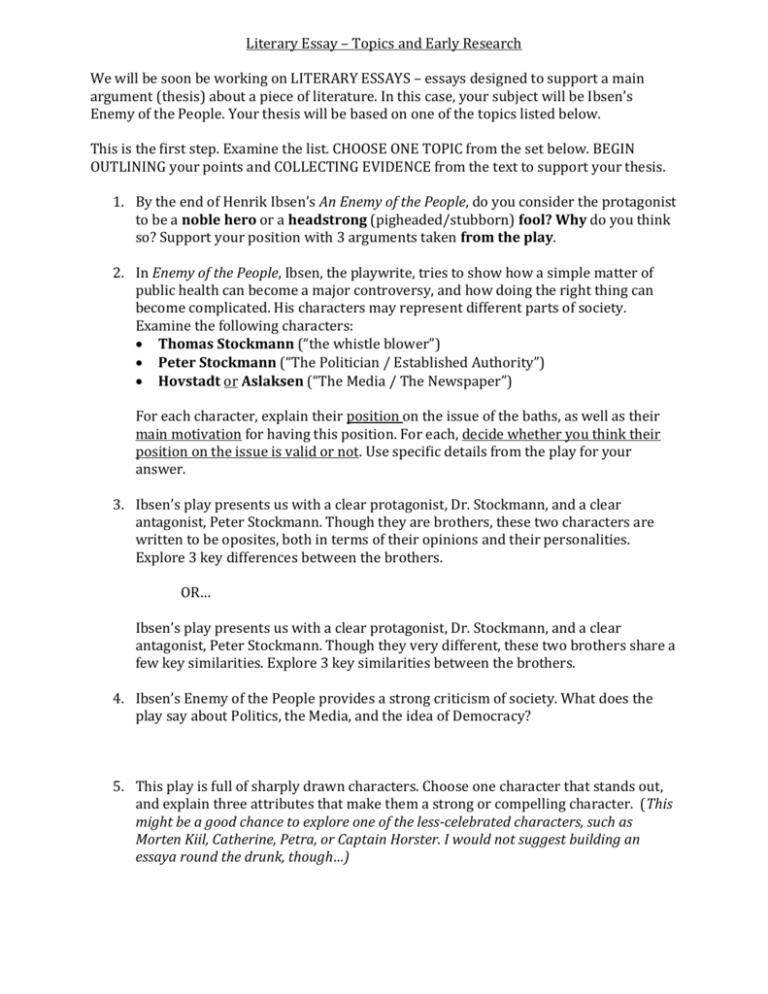
Literary Essay – Topics and Early Research We will be soon be working on LITERARY ESSAYS – essays designed to support a main argument (thesis) about a piece of literature. In this case, your subject will be Ibsen’s Enemy of the People. Your thesis will be based on one of the topics listed below. This is the first step. Examine the list. CHOOSE ONE TOPIC from the set below. BEGIN OUTLINING your points and COLLECTING EVIDENCE from the text to support your thesis. 1. By the end of Henrik Ibsen’s An Enemy of the People, do you consider the protagonist to be a noble hero or a headstrong (pigheaded/stubborn) fool? Why do you think so? Support your position with 3 arguments taken from the play. 2. In Enemy of the People, Ibsen, the playwrite, tries to show how a simple matter of public health can become a major controversy, and how doing the right thing can become complicated. His characters may represent different parts of society. Examine the following characters: Thomas Stockmann (“the whistle blower”) Peter Stockmann (“The Politician / Established Authority”) Hovstadt or Aslaksen (“The Media / The Newspaper”) For each character, explain their position on the issue of the baths, as well as their main motivation for having this position. For each, decide whether you think their position on the issue is valid or not. Use specific details from the play for your answer. 3. Ibsen’s play presents us with a clear protagonist, Dr. Stockmann, and a clear antagonist, Peter Stockmann. Though they are brothers, these two characters are written to be oposites, both in terms of their opinions and their personalities. Explore 3 key differences between the brothers. OR… Ibsen’s play presents us with a clear protagonist, Dr. Stockmann, and a clear antagonist, Peter Stockmann. Though they very different, these two brothers share a few key similarities. Explore 3 key similarities between the brothers. 4. Ibsen’s Enemy of the People provides a strong criticism of society. What does the play say about Politics, the Media, and the idea of Democracy? 5. This play is full of sharply drawn characters. Choose one character that stands out, and explain three attributes that make them a strong or compelling character. (This might be a good chance to explore one of the less-celebrated characters, such as Morten Kiil, Catherine, Petra, or Captain Horster. I would not suggest building an essaya round the drunk, though…)
